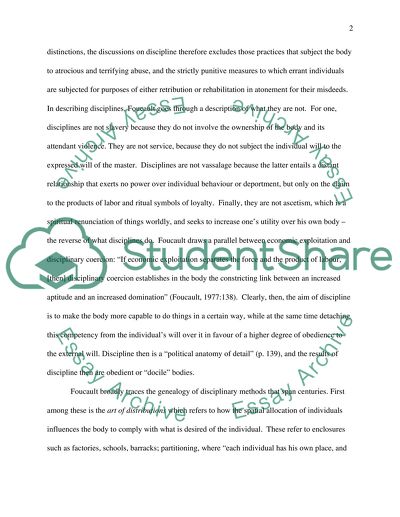Cite this document
(“Foucault's Philosophy Essay Example | Topics and Well Written Essays - 2000 words”, n.d.)
Retrieved de https://studentshare.org/law/1391687-criminal-justice
Retrieved de https://studentshare.org/law/1391687-criminal-justice
(Foucault'S Philosophy Essay Example | Topics and Well Written Essays - 2000 Words)
https://studentshare.org/law/1391687-criminal-justice.
https://studentshare.org/law/1391687-criminal-justice.
“Foucault'S Philosophy Essay Example | Topics and Well Written Essays - 2000 Words”, n.d. https://studentshare.org/law/1391687-criminal-justice.


